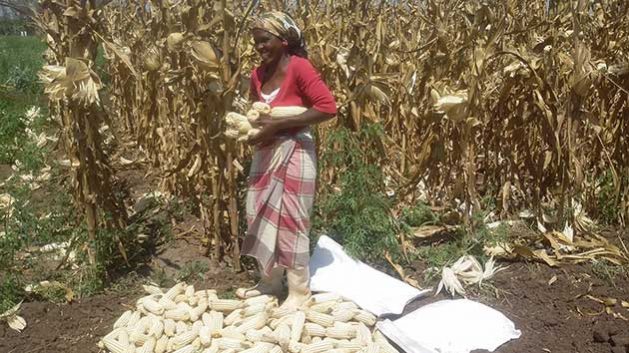
In a move set to bolster agricultural productivity and strengthen national food security, the Grain Marketing Board (GMB) has officially announced the producer prices for the 2025 summer cropping season along with the incentive planning price for winter wheat. The announcement underscores the government’s commitment to supporting farmers while ensuring macroeconomic stability in Zimbabwe’s agricultural sector.
Supporting Farmers and Food Security
The newly approved producer prices for the 2025 season are as follows:
- Maize: USD $376.48 per metric tonne
- Traditional Grains: USD $376.48 per metric tonne
- Soybean: USD $580.00 per metric tonne
- Sunflower: USD $668.98 per metric tonne
In addition to the summer crop prices, the GMB set the Winter Wheat Incentive Planning Price at USD $451.35 per metric tonne. This price is designed to motivate wheat farmers as the country continues its strong push towards wheat self-sufficiency, building on successive record-breaking harvests in previous years.
Strategic Procurement and Market Stability
The GMB will mainly procure grains from farmers participating in the Presidential Input Programme (PIP) and from those involved in irrigation schemes. Contractors will remain responsible for purchasing produce grown under private contract farming arrangements at prevailing market rates.
This procurement strategy is aimed at balancing national food reserves while encouraging private sector participation and investment in agriculture. It also supports the broader objective of promoting efficient, market-oriented production that can adapt to both local demand and export opportunities.
In a strategic partnership with the Zimbabwe Mercantile Exchange (ZMX), GMB will also facilitate the commercial warehouse receipt system for all stakeholders. This system allows farmers and traders to use stored grain as collateral for financial transactions, enhancing liquidity and investment in the agricultural sector.
GMB’s Commitment to Agricultural Transformation
Speaking on the announcement, Dr. E. Badarai, Chief Executive Officer of the GMB, reaffirmed the organization’s unwavering commitment to transforming Zimbabwe’s agricultural sector.
“Through setting fair producer prices and introducing market-based mechanisms like warehouse receipts, the GMB is driving a long-term vision for sustained food security, economic development, and empowerment of our farming communities,” Dr. Badarai said.
The producer pricing strategy, he emphasized, is carefully calibrated to ensure that farmers are adequately rewarded for their efforts, while also safeguarding against inflationary pressures that could destabilize the economy.

Building a Sustainable Agricultural Future
The GMB’s latest pricing and procurement framework reflects Zimbabwe’s evolving agricultural policy landscape, where economic resilience, market efficiency, and rural development are closely intertwined. By creating predictable and rewarding market conditions for farmers, the government and its agencies aim to encourage higher production volumes, boost rural incomes, and solidify Zimbabwe’s status as a regional leader in agricultural transformation.
The incentive planning price for winter wheat, in particular, is expected to drive increased participation in the upcoming season, ensuring that Zimbabwe not only meets but potentially exceeds its national wheat requirements, with a surplus available for strategic reserves and exports.
For further information or inquiries, stakeholders are encouraged to contact the GMB Corporate Communications Department at +263 8677004941 or via email at publicrelations@gmbdura.co.zw.
As Zimbabwe moves into the 2025 agricultural season, the GMB’s proactive approach to setting producer prices sends a strong signal of confidence to the nation’s farmers. By combining fair market incentives with strategic policy frameworks, the country is laying the groundwork for a vibrant, self-sufficient, and economically empowering agricultural sector.
This is a dynamically generated comment by Chen Wei.
This is a dynamically generated comment by Elena Petrova.